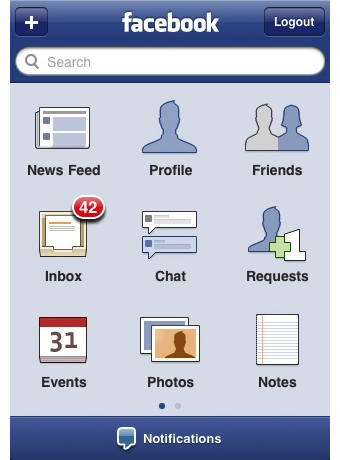Apple is on the receiving end of a lot of grief over the defensive wall around the iPhone, iPod Touch and iPad. Many developers are vocally critical of the rules governing how apps are approved and which technologies are selectively excluded. Most notably, Adobe‘s Flash technology has been very publicly rejected by Steve Jobs. Some contend that this is a calculated business move by Apple that ensures control over applications that run on the iDevices. Others tow the party line by sighting the battery drain or buggy nature that sometimes accompanies Flash. However people would like to split the minutia, the overarching theme is that Apple wants to maintain control over the user experience.
 Closed systems like this have several benefits. Software can be vetted by experts before it gets into the market: blocking confusing functionality, managing the user’s exposure to risk, protecting the devices from viruses and ensuring a high quality application pool. No one really complained too loudly about Apple’s closed systems when it comes to hardware accessories. But there you see other benefits more clearly like device compatibility, quality control and even price in some cases.
Closed systems like this have several benefits. Software can be vetted by experts before it gets into the market: blocking confusing functionality, managing the user’s exposure to risk, protecting the devices from viruses and ensuring a high quality application pool. No one really complained too loudly about Apple’s closed systems when it comes to hardware accessories. But there you see other benefits more clearly like device compatibility, quality control and even price in some cases.
Ignoring the consumer benefits of closed system, many developers see them as a way for companies like Apple to make more money. Selling a program in the iTunes App Store requires that application programmers to pay Apple a portion of their revenue and if an application duplicates functionality of a built-in app it’s likely to be rejected by Apple outright. Not every closed system draws ire from the programming community.
Another high-profile closed system is found in Facebook‘s messaging system. While they’ve opened up their chat to programs like Trillian, but their system that most closely resembles email remains closed. Users of regular email cannot get messages in, but Facebook’s system does send a copy of messages sent out to recipient’s email accounts. This has the clear benefit of reducing spam, but you don’t hear email marketers making too much noise about it. They are not well loved and their complaints about how they can’t send messages into everyone’s favorite social network will likely fall on deaf ears.
The Internet should be open, some say. Open systems, like email, have existed for decades and are part of the Internet’s history and a big reason for its adoption. Email is so popular, in fact, that some people have trouble distinguishing it from the Internet at all. But email in the new millennium is loaded with problems. Most emails, about 97%, are unsolicited marketing messages or automated messages, sometimes with malicious attachments. The openness of email plays to the hands of the abusers over time. Even with great filtering software, like that included in GMail, these messages get in where they’re not wanted.
Web sites like Facebook and fancy devices like the iPhone probably wouldn’t look like they do today if they hadn’t had the benefit of the open Internet. But it’s not necessarily evil to build a closed system that accesses or sits on top of an open one. In the end it’s up to the owners of the system how they handle their products. They’ll weigh the risks and the benefits of each option and choose the philosophy that best suits them and their users. In doing so they’ll thrive or starve based on the adoption of that system. Other than lack of adoption, the biggest risk of all is opening those doors because once they’re open it’s incredibly difficult to close them again.




